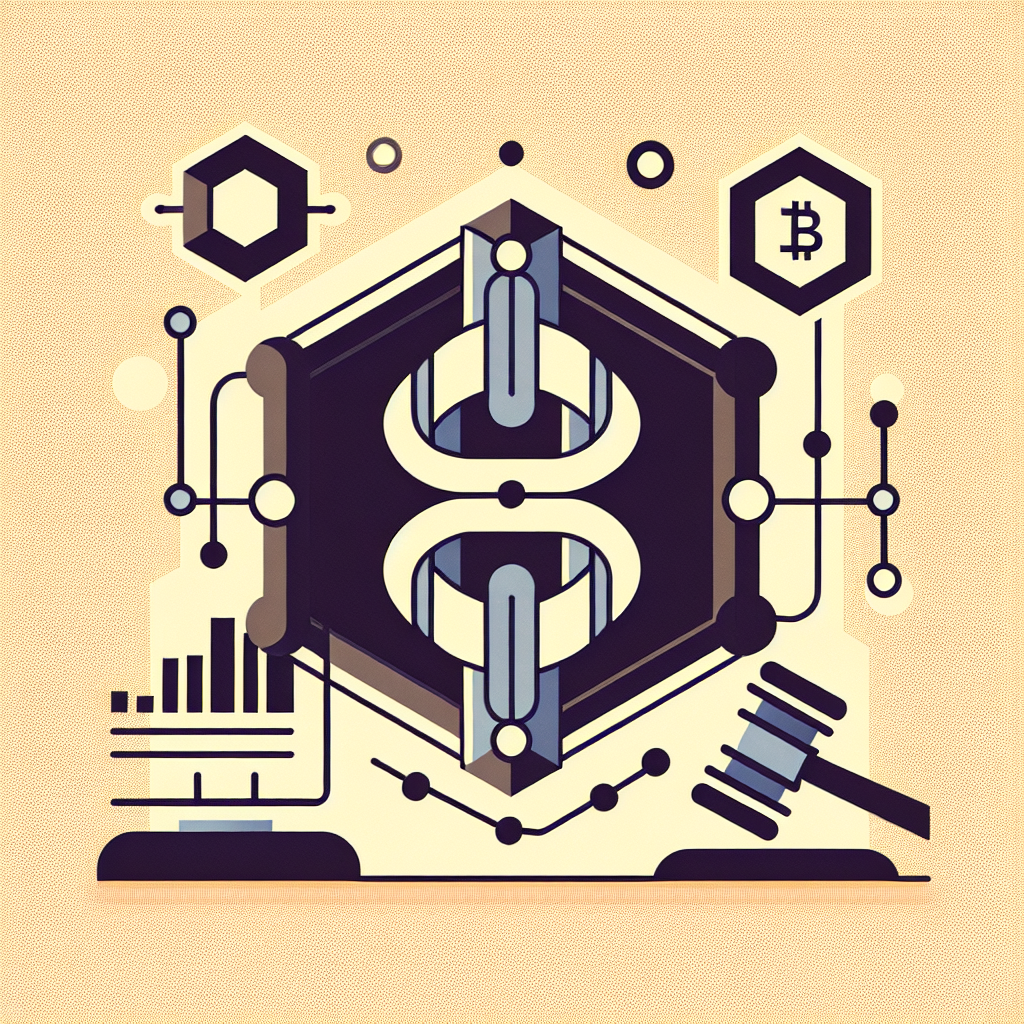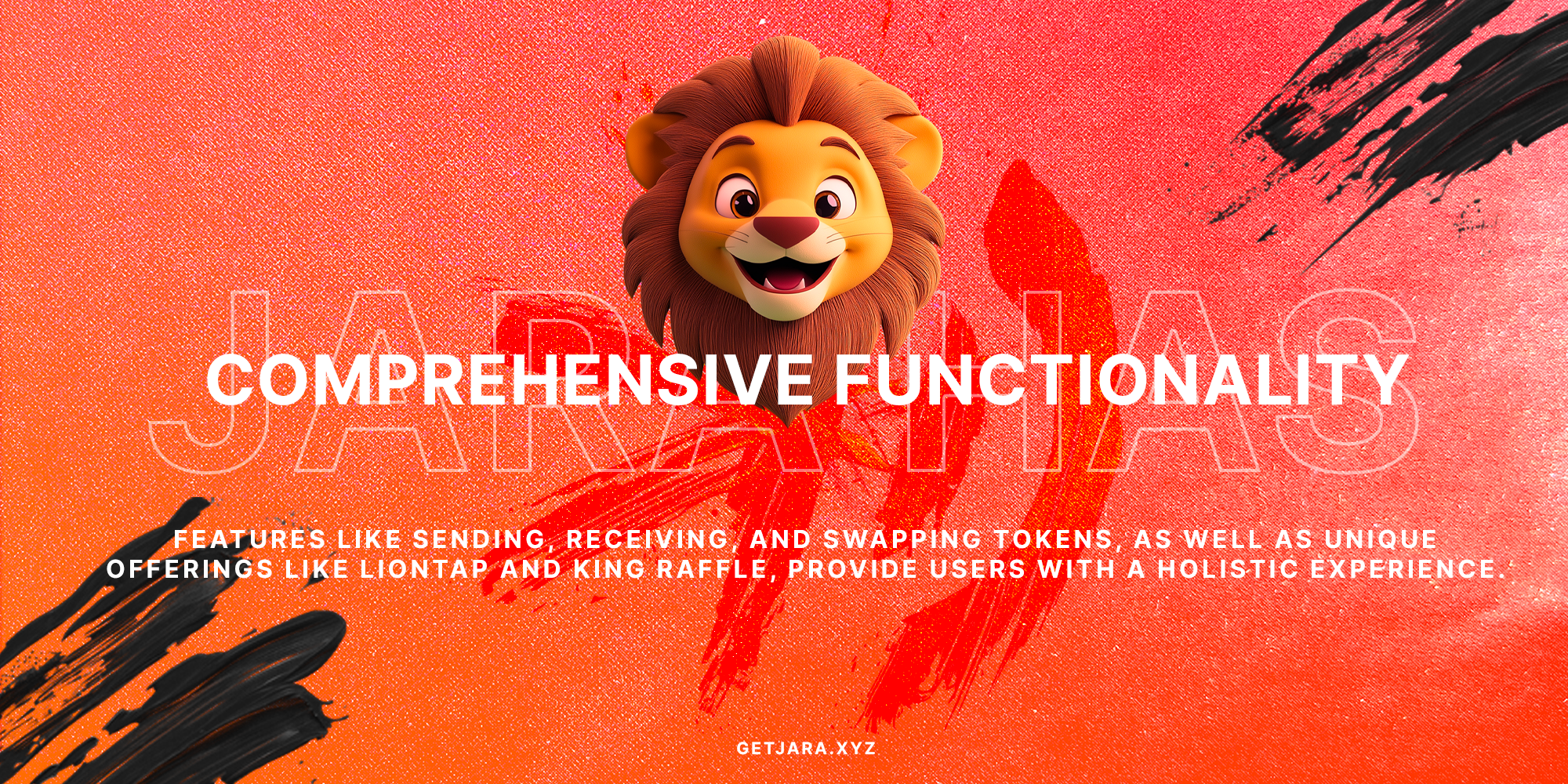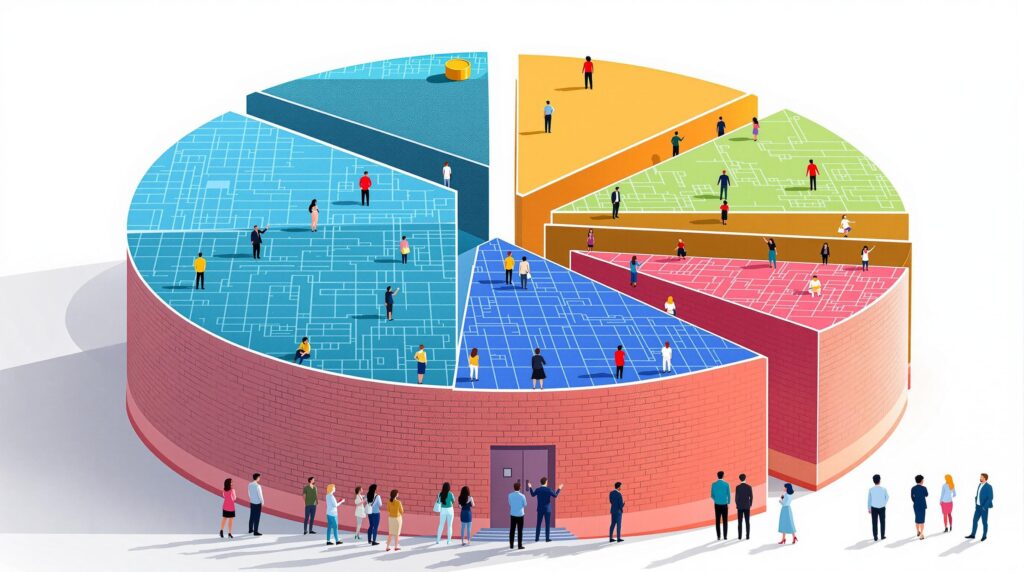Understanding Tokenized Stocks
Tokenized stocks represent digital shares in a real-world company, making equity ownership more accessible and flexible. By using blockchain, these stocks can be securely bought, sold, and traded on decentralized platforms. As a pivotal innovation, they introduce a dynamic approach to owning equity, improving the traditional methods of stock trading.
The Role of Blockchain
Blockchain technology serves as the backbone for the tokenization of stocks, offering enhanced security, transparency, and efficiency. Transactions occur on a decentralized ledger, reducing the risk of human error and increasing trust in the system. This technological leap is setting new standards for equity markets, enticing investors worldwide.
What are tokenized stocks? Tokenized stocks are digital representations of equity in a company, issued and traded on a blockchain network, offering new ways to participate in ownership.
Imagine traditional stock exchanges as old steam locomotives—reliable but cumbersome with delays. Blockchain, on the other hand, is akin to a sleek bullet train, providing swift and efficient services. The infrastructure provided by Jara relates to this transformation, bridging the gap between traditional and modern financial systems in Africa’s burgeoning markets.
Using blockchain, tokenized stocks ensure immutability; once recorded, transactions cannot be altered. This quality guarantees security, which is essential for investor confidence. Furthermore, liquidity is enhanced, with increased market participation due to lower entry barriers.
Platforms like Jara are at the forefront of this transformation. They enable fractional ownership, allowing investors to buy portions of a stock at a fraction of the price of whole shares. This opens up investment opportunities to individuals who might otherwise be excluded from traditional stock markets.
Benefits of Tokenized Stocks
The primary advantage of tokenized stocks is their ability to democratize investing, opening the gates to wealth creation for thousands of new investors. By leveraging blockchain, these stocks provide higher transparency and security. Moreover, the capability for 24/7 trading enhances flexibility, bustling with opportunities in an ever-connected financial ecosystem.
- Transparency: Blockchain’s ledger is visible and auditable, providing clarity in transactions.
- Security: The decentralized nature diminishes risks associated with centralized exchanges.
- Efficiency: Automation through smart contracts streamlines processes and minimizes errors.
- Accessibility: Fractional ownership helps investors from diverse economic backgrounds participate.
The emergence of tokenized stocks aligns seamlessly with the $JARA token’s mission of fueling Africa’s digital asset economy. By converting real-world assets into digital tokens, Jara is helping overcome the infrastructure gap, creating a robust ecosystem where strategic alliances and partnerships flourish.
Invest in $JARA: Fuel Africa’s $200B+ Digital Asset Economy and Participate in a Revolutionary Ecosystem.
With tokenized stocks, the fabric of equity markets is changing. Traditional barriers become obsolete, replaced by swift transactions and automated governance through smart contracts. While challenges like regulatory compliance remain, defensive legal strategies are evolving parallel with technological progress.
The shift towards tokenization is not merely a trend; it’s a financial revolution that platforms like Jara eagerly embrace, heralding an era where stock markets are more inclusive and operationally efficient, paving ways for global participation in Africa’s promising market landscapes.
This HTML content is designed to be directly embedded into a WordPress site and is mobile responsive. It optimally uses target keywords and links to boost SEO and reader engagement while adhering to provided formatting rules.
Advantages of Tokenized Stocks
Tokenized stocks revolutionize equity markets by offering distinct advantages over traditional stocks. Unlike conventional trading scenarios limited by time zones, tokenized stocks enhance liquidity because they allow trading 24/7. This flexibility empowers global investors to engage with markets at their convenience, fostering a vibrant investment environment.
What are tokenized stocks? Tokenized stocks are digital representations of equity in a company, issued and traded on a blockchain network, offering new ways to participate in ownership.
Flexibility and Market Reach
Investors benefit from unparalleled flexibility with tokenized stocks, as they open the doors to global exchanges and create an inclusive financial ecosystem. This is particularly beneficial for diversification and exploring new investment opportunities. Imagine having the ability to invest in different markets without geographical constraints—news from Africa can seamlessly impact your portfolio in real-time.
“Jara – Unlocking the Future to Africa’s Crypto Ecosystem.”
The concept of fractional ownership is another compelling advantage. Traditional barriers associated with the acquisition of expensive stocks are lowered via tokenization, allowing investors to buy fractions of stocks instead of whole shares. This democratization invites a broader audience to participate, making equity markets more accessible to those who previously couldn’t afford larger investments.
- Round-the-Clock Trading: Tokenized stocks can be traded 24/7, providing an edge over traditional markets bound by limited trading hours.
- Fractional Ownership: Invest in smaller increments, opening up accessibility for investors with varying budgets and promoting inclusivity.
- Global Market Access: Seamlessly explore opportunities in diverse markets, like emerging projects in Africa, allowing expansive portfolio diversification.
How does blockchain technology enhance transparency? Blockchain technology enhances transparency by providing a tamper-proof ledger for all transactions, ensuring superior security and trust among investors.
The efficiency provided by blockchain integrates seamless and secure transaction capabilities. As part of the digital asset ecosystem, tokenized stocks utilize smart contracts to automate exchanges under pre-set conditions, enhancing both accuracy and speed of transactions.
Tokenized stocks enhance liquidity and promote fractional ownership, transforming how equity markets operate and making them more inclusive and efficient.
The paradigm shift offered by tokenized stocks aligns with platforms like Jara, aiming to reshape Africa’s digital economy. By bridging global capital with African investments, tokenization of stocks promises not just returns, but a stake in economic transformation.
Furthermore, the democratization of investment opportunities through tokenized stocks could see traditional stock markets being viewed as anachronistic, unable to keep pace with the rapid technological advancements made possible by blockchain technology.
Overall, tokenized stocks pave the way for a more democratized, efficient, and inclusive investment landscape—unlocking unprecedented capital inflow into regions like Africa, spearheaded by pioneering platforms such as Jara.
Why invest in tokenized stocks? Tokenized stocks offer unprecedented market access, enhance liquidity, and democratize investment, representing the future of equity markets.

Challenges and Risks of Stock Tokenization
While the advent of tokenized stocks presents exciting opportunities, it also introduces several challenges and risks. Understanding these factors is vital for anyone looking to engage in this innovative market. Although tokenized stocks harness blockchain’s potential, they face unique barriers, such as regulatory challenges and security risks, which can be critical for their widespread adoption.
Addressing Regulatory and Security Concerns
The current regulatory environment for tokenized stocks is complex and varies significantly across jurisdictions. This creates a challenging landscape for organizations trying to ensure compliance. For example, while some countries are embracing tokenization, others remain cautious and impose stringent regulations. A keen understanding of these legal frameworks is indispensable for issuing tokens legally and avoiding punitive measures.
Security remains a paramount concern for tokenized stocks. Although blockchain itself is secure, tokens exist in a digital form, making them vulnerable to cyber threats such as hacking and unauthorized access. Without proper security measures, investors could face severe losses. Hence, it’s crucial for companies to implement comprehensive security protocols that include encryption methods, regular audits, and secure private key management.
What is the impact of losing digital wallet keys? Losing your digital wallet keys can mean permanent loss of access to your tokenized stocks, as these keys are essential for managing and protecting your digital assets.
The evolving landscape requires businesses and investors to remain agile and informed. Resources like the Jara platform, which is at the forefront of tokenization in Africa, provide valuable insights and strategic opportunities to navigate these challenges.
The Technological and Market Acceptance Barriers
For tokenized stocks to disrupt traditional markets, they must overcome technological and market acceptance barriers. Implementing blockchain and smart contracts involves sophisticated technology infrastructure, which demands substantial investment and technical expertise. Not all organizations are equipped to handle these requirements, which may slow down adoption rates.
Furthermore, convincing market stakeholders of the reliability and efficiency of tokenized stocks is a significant hurdle. Tokenization can result in notable price volatility, especially in its infancy, making investors wary. Market participants require assurance of stability before fully embracing this innovation over traditional methods.
Why is market volatility a concern with tokenized stocks? Market volatility makes tokenized stocks risky as the value can significantly rise or fall due to uncertainty about regulatory and market stability.
Projects like Jara’s Lagos airport tokenization initiative are pioneering the way forward, demonstrating the practical benefits and potent opportunities associated with tokenization. As Jara continues to lead innovation in Africa’s digital asset economy, the acceptance and implementation of tokenized stocks are likely to expand, opening new horizons for investors worldwide.
The Future of Tokenized Stocks
The future of tokenized stocks looks incredibly promising as blockchain technology continues to evolve. With enhanced accessibility and liquidity, these digital assets are reshaping the financial landscape and offering a window into more inclusive and dynamic investment models. Platforms like Jara are at the forefront, spearheading this transformation by enabling investments across diverse markets and driving innovation in the digital asset economy.
Impact on Global Investment
As tokenized stocks gain traction, they have the potential to revolutionize traditional investment models by creating a more inclusive and efficient financial system. The integration of blockchain technology with equity markets paves the way for a more secure and connected global economy, maximizing opportunities for investors worldwide.
Tokenized stocks use blockchain technology to represent shares of a company, allowing for more seamless and cost-effective trading on decentralized platforms.
Imagine a world where you can trade equities around the clock without being constrained by traditional stock market hours. This is not just theoretical but a reality with tokenized stocks, as they operate on blockchain platforms that facilitate 24/7 trading. By leveraging the security and transparency of blockchain, tokenized stocks are a game-changer for investors looking for more flexibility in their portfolios.
The Role of Decentralized Platforms
Decentralized platforms like Jara are pivotal in this shift. By cutting out intermediaries and offering direct ownership transfers, Jara not only reduces transaction costs but also accelerates the settlement process. These platforms exemplify the advancements in smart contract technology that are critical for executing trades quickly and securely.
Moreover, Africa stands uniquely positioned to benefit from these advancements. On a continent with a burgeoning digital asset economy, initiatives like Jara’s $6 billion Lagos airport tokenization project highlight the viability of integrating real-world assets into blockchain ecosystems. By aligning with strategic partners and securing vital regulatory approvals, $JARA token holders gain exclusive access to a transformative financial landscape poised to unlock untapped opportunities.
Challenges to Consider
Despite the promising future, several challenges remain. Regulatory hurdles persist as legal frameworks struggle to keep pace with technological innovations in the tokenization space. From security concerns related to digital assets to uncertainties in international compliance, these obstacles must be navigated with diligence and foresight.
What is the impact of losing digital wallet keys? Losing your digital wallet keys can mean permanent loss of access to your tokenized stocks, as these keys are essential for managing and protecting your digital assets.
While security risks like hacking and loss of private keys pose significant threats, ongoing advancements in blockchain security protocols aim to mitigate these issues. The role of innovative security measures cannot be overstressed as they safeguard investor confidence and promote broader adoption of tokenized stocks.
Conclusion: A New Dawn for Investing
With the potential to redefine global investment strategies, tokenized stocks represent a paradigm shift in financial inclusivity and accessibility. Platforms like Jara are not just participating in this change; they are driving it, marking a new dawn for digitally empowered investors. As blockchain technology continues to integrate seamlessly into the equity landscape, the future promises a more democratized and engaging financial world, ripe with opportunities for innovative investors.

How do tokenized stocks work?
Tokenized stocks work by converting real-world equity shares into digital tokens on a blockchain. Each token represents ownership and enables buying, selling, or trading on decentralized platforms.
What are the benefits of investing in tokenized stocks?
Investing in tokenized stocks offers several benefits, such as enhanced liquidity, fractional ownership, and 24/7 trading access on global markets. These advantages help democratize investment opportunities.
What are the regulatory challenges of tokenized stocks?
The regulatory challenges of tokenized stocks include navigating complex securities laws and compliance requirements. Adopting comprehensive awareness and adherence to evolving regulations is crucial for their successful deployment.
How does $JARA contribute to the tokenized stock ecosystem?
$JARA contributes to the tokenized stock ecosystem by providing infrastructure for tokenization. It enables seamless global transactions, enhances investment access within Africa, and supports regulatory compliance through strategic partnerships and cutting-edge blockchain solutions.

Further Reading
Explore these topics for a deeper understanding of how blockchain technology is paving the way for the future of finance.

Take the Next Step in the Revolution of Tokenized Stocks
Unlock the future of investing with Jara – where global capital meets African assets.
The world of equity markets is transforming, and tokenized stocks are leading the way. Embrace this innovation by downloading the Jara Wallet App. Not only does it connect you to the burgeoning opportunities within the African market, but it also ensures your investments are managed with cutting-edge technology. Ready to join the future?
- Download the Jara Wallet: Available on Android and iPhone for seamless access to innovative financial products.
- Stay Updated: Follow us on social media for the latest news and updates on how blockchain is reshaping equity markets.
“$JARA: Bridging Global Capital to African Assets” – Discover the potential of tokenized stocks today.
Understanding Personal Injury Law
What is Personal Injury Law?
- Definition: Personal injury law covers legal disputes that arise when one person suffers harm from an accident or injury, and someone else might be legally responsible.
- Key Elements: Negligence, liability, and damages.
Types of Personal Injury Cases
- Automobile Accidents: Involves claims for injuries sustained in car, motorcycle, or truck accidents.
- Slip and Fall: Occurs when someone is injured on another’s property due to unsafe conditions.
- Medical Malpractice: Claims against healthcare professionals for negligence causing patient harm.
“Not all personal injuries lead to lawsuits, but knowing your rights is essential when they do.”
The Legal Process in Personal Injury Cases
Filing a Claim
- Initial Steps: Collect evidence, document injuries, and seek legal counsel.
- Importance of Timeliness: Statute of limitations may limit the time available to make a claim.
Negotiation and Settlement
- Negotiation Phase: Involves discussions between parties to reach a fair settlement.
- Benefits of Settlement: May be quicker and less costly than going to trial.
“Over 95% of personal injury cases are settled pre-trial, highlighting the importance of negotiation skills.”
How a Personal Injury Lawyer Can Help You
Why Hire a Personal Injury Lawyer?
- Legal Expertise: Lawyers understand intricate legal procedures and insurance policies.
- Negotiation Power: Lawyers can often secure higher settlements through effective negotiation.
Choosing the Right Lawyer
- What to Look For: Experience, track record, and client testimonials.
- Initial Consultation: Many lawyers offer free consultations to discuss your case.
“Your Voice, Our Mission” – we champion your rights with the tenacity and dedication that has earned us the trust of our community members.
Conclusion
Taking the Next Step
- Evaluate Your Situation: Assess the potential for a personal injury claim with a professional.
- Contact a Lawyer: Reach out to experienced legal professionals to get started on your case.
“Every personal injury case is unique, and seeking tailored legal advice can significantly impact the outcome.”

















